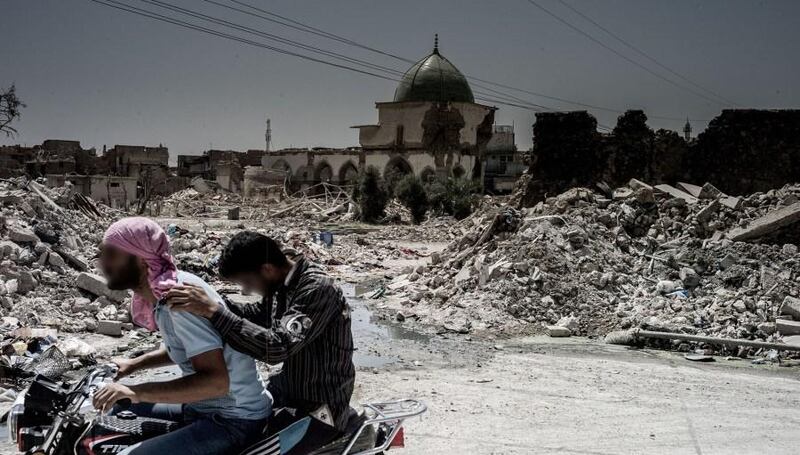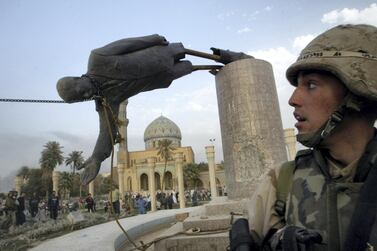The creators of a five-part documentary on Iraq’s 2003 invasion have said it was their goal to give a voice to ordinary Iraqis, whose part in the country’s recent history had been overlooked.
Filmmaker James Bluemel's five-hour series Once Upon a Time in Iraq tells the story of the US-led intervention and its legacy, tracing a narrative from 2003 through cycles of violent upheaval until the defeat of ISIS.
The series’ difficult-to-watch immediacy owes much of its impact to the unvarnished testimony of ordinary Iraqis who have found themselves on the receiving end of extraordinary hardship.
Ahmed Albasheer might be the most famous comedian in Iraq now, but he was a teenager in 2003, excited at the prospect of speaking English with real Americans - until the realities of the occupation sank in. Albasheer, one of the documentary’s contributors, on Thursday spoke at a Chatham House webinar about the many sorrows of his compatriots.
“In Iraq, we do this. We have sad moments every week, almost every day,” he said. “There is a sad story in almost every house in Iraq,
“I'm sure every Iraqi house has their own sorrow or our own, let's say probably a big problem.”
The series, released by the BBC in July and broadcast in the US by PBS, includes interviews with Iraqis who were victims of the American airstrikes, lived under ISIS’s regime of terror in Mosul and, in one case, a die-hard supporter of Saddam Hussein.
It also includes interviews with Western journalists and US military officers and soldiers who were at the forefront of the US invasion and occupation.
Mr Bluemel said that he wanted viewers to experience what all those involved had gone through.
“I wanted people to feel it,” he said. “I want people to feel empathy. And people feel empathy not with a topic or with an event, they feel empathy with other people. So it was really important to make that connection.”
Dr Renad Mansour, a senior research fellow at Chatham House, who consulted on the documentary, said the opinions of policymakers and politicians had ultimately been left out of the series because those individuals had already told their story.
“They've already had their voice,” Dr Mansour said. “Everybody knows the narratives. The only voices that have been missing are the voices of those people who didn't have that opportunity.”
The producer of the series, Jo Abel, said that after the completion of Mr Bluemel's 2017 Bafta-winning documentary Exodus about Europe's migrant crisis, there had been a desire to apply a similar kind of storytelling to Iraq.
“In the same way that ‘Exodus’ was raw and it was revealing, and people were telling stories that were very difficult for them to tell. I think the same is true of the people that we've spoken to in the series,” Ms Abel said.
“I think the difference in what we did is that we were there to tell people’s stories.”







